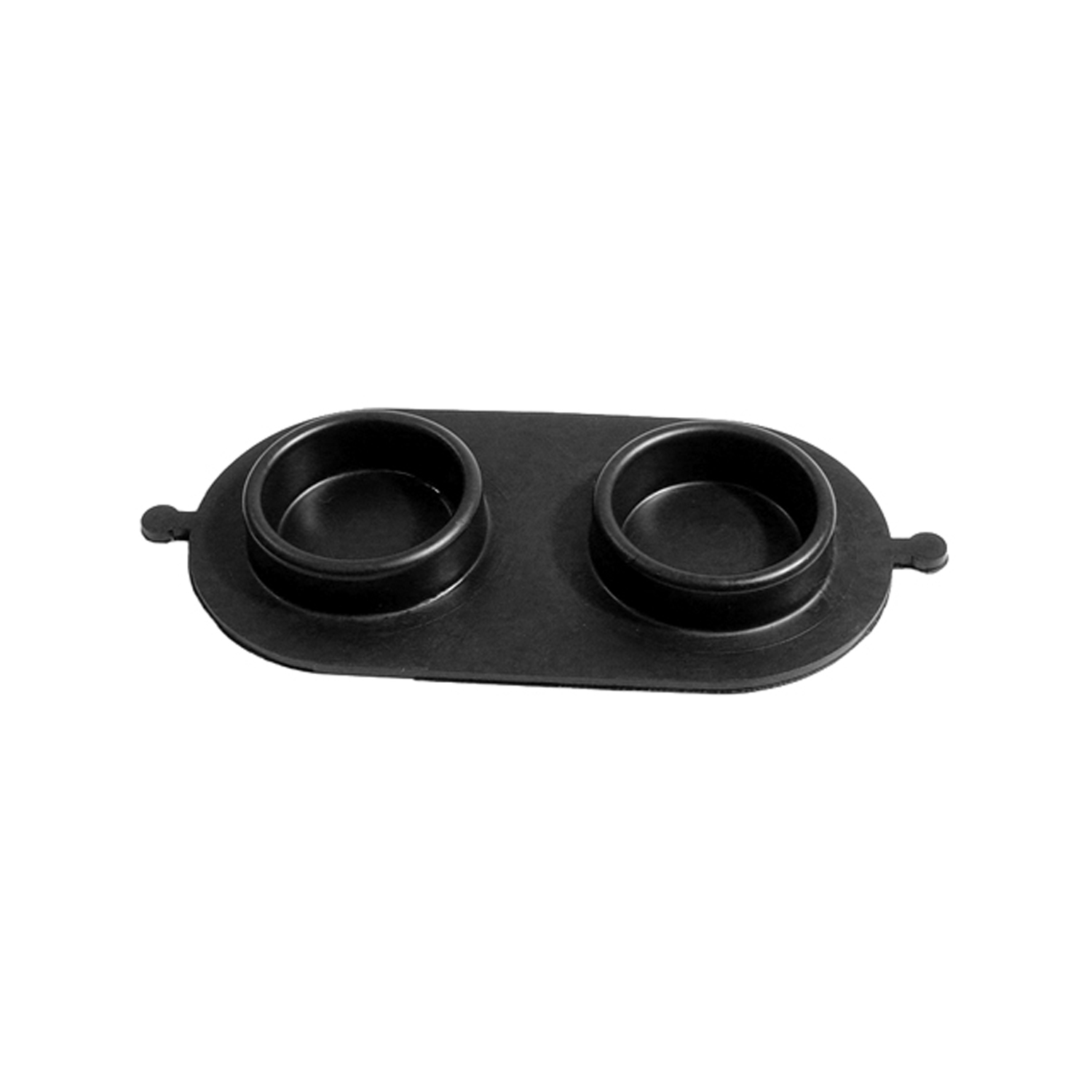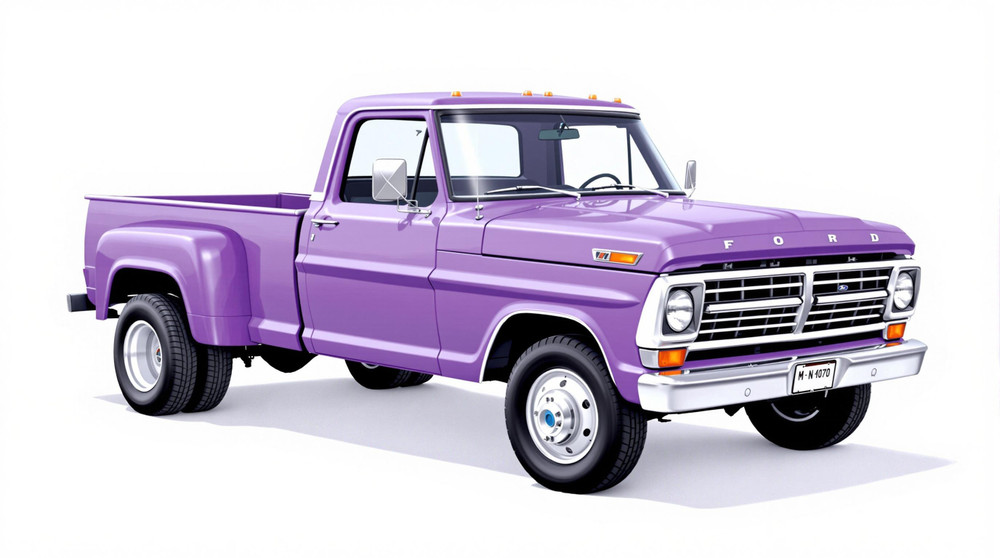Image of 1971 Ford M-400, Note: These illustrations use artistic license and may differ from actual historical models.
Performance Metrics
Fundamental Metrics
Emotional Appeal
MMP Rating
| Engine Specifications | |
|---|---|
| Engine: | 5.8L Windsor V8 |
| Displacement: | 351 cubic inches (5.8L) |
| Horsepower: | 250-300 hp |
| Torque: | 355 lb-ft |
| Compression Ratio: | 9.0:1 |
| Ignition System: | Conventional breaker-point ignition system |
| Cooling System: | Liquid-cooled |
| Performance Specifications | |
| 0-60 Time: | Estimated 10-12 seconds |
| 1/4 Mile Time: | Estimated 16-18 seconds |
| Top Speed: | 100 mph |
| Transmission and Drive | |
| Drive Type: | Rear-wheel drive |
| Transmission Type: | 3-speed automatic |
| Fuel and Efficiency | |
| Fuel System Type: | Carburetor |
| MPG: | Estimated 10-12 mpg |
| Dimensions and Brakes | |
| Brakes: | Front disc and rear drum brakes |
| Wheelbase: | 140 inches |
| Weight: | 4,500 lbs |
Note: Specifications for classic cars are given to the best of our ability, considering the limited and variant data available.
The Unheralded Workhorse: The 1971 Ford M-400
In the pantheon of classic vehicles, some shine as icons of their era, while others serve dutifully without fanfare. The 1971 Ford M-400 falls into the latter category—a vehicle that embodies the utilitarian spirit of early '70s America. Born from the industrious halls of the Ford Motor Company, this model was a response to the needs of a changing nation, offering versatility and reliability in a time of evolving automotive demands.
While not as celebrated as its Mustang or Thunderbird siblings, the M-400 has carved its niche in the annals of automotive history. Notably, it served as a robust platform for ambulances, small buses, and RV conversions, showcasing Ford's commitment to providing practical solutions for commercial and recreational needs.
Design and Innovation
The exterior styling of the 1971 Ford M-400 exuded strength and purpose. With its prominent grille and squared-off body lines, it projected an image of rugged dependability. Inside, the cabin was spartan yet functional, with durable materials designed to withstand the rigors of heavy use. While not luxurious by any means, the interior offered ample space for customization, which was a key selling point for commercial buyers.
For its time, the M-400 was equipped with technology that prioritized function over form. The color options were reflective of the era's tastes, with earth tones like avocado green and harvest gold being popular choices among the more vibrant hues. The most iconic body style was undoubtedly the chassis cab, which provided a blank canvas for various aftermarket applications.
Historical Significance
The 1971 Ford M-400 may not have revolutionized automotive design, but its impact on the industry was nonetheless significant. It demonstrated Ford's ability to adapt to market needs, creating a vehicle that could be easily transformed for different purposes. This versatility set it apart from many contemporaries and laid the groundwork for future generations of multi-purpose vehicles.
Performance and Handling
Performance-wise, the M-400 was more about muscle than speed. Its V8 engine provided enough power to haul heavy loads, though it wasn't going to break any records on the drag strip. Handling was what one would expect from a vehicle of its size—sturdy and reliable but not particularly nimble. Driving an M-400 was about feeling in command of a capable machine, with the V8's rumble as your constant companion.
Ownership Experience
Owners of the 1971 Ford M-400 typically used their vehicles for work-related tasks or as a base for recreational vehicles. Maintenance and reliability were strong points, with parts being readily available and repairs generally straightforward—attributes that endeared it to those who valued practicality over prestige.
Fun Facts
Among the trivia surrounding the M-400 is its niche following among classic RV enthusiasts. While not a vehicle that commonly graced the garages of celebrities, it earned its fame on the open road with travelers and adventurers. Criticisms were few but typically centered around fuel efficiency—a common issue for vehicles of its size during that period.
Collector's Information
Today, the 1971 Ford M-400 is a rare sight, with production numbers not nearly as high as Ford's more mainstream offerings. As such, its value range for collectors can vary widely based on condition and originality. A well-preserved M-400 chassis cab converted into a vintage RV might fetch a higher price than a standard model due to its uniqueness and nostalgia factor. Prices can range from a few thousand dollars for models needing restoration to upwards of $20,000 or more for pristine examples.
Conclusion
The 1971 Ford M-400 may not be the first vehicle that comes to mind when one thinks of classic cars, but its contribution to automotive history is undeniable. It represents an era when functionality reigned supreme, and versatility was king. For those who appreciate the unsung heroes of the road, the M-400 holds a special place—a testament to Ford's enduring legacy of building vehicles for every need.
1971 Ford M-400 Catalog of Parts
 1971 Ford M-400 Brake Master Cylinder Cover Seal. Replaces OEM #C7AZ2167-A-RP 2-BBrake Master Cylinder Cover Seal. Replaces OEM #C7AZ2167-A. Each
1971 Ford M-400 Brake Master Cylinder Cover Seal. Replaces OEM #C7AZ2167-A-RP 2-BBrake Master Cylinder Cover Seal. Replaces OEM #C7AZ2167-A. EachWhy Choose Metro?
For over 100 years, Metro Moulded Parts has been the pinnacle of quality in classic car restoration parts. Our commitment to precision and authenticity in every component ensures a perfect fit and an OEM-level appearance.
- Expert Craftsmanship & Quality: Each part is a testament to our dedication to reliability and perfection, crafted from original designs and thoroughly tested.
- Advanced Technology: We use cutting-edge techniques to create flawless, long-lasting parts that surpass others in performance.
- SuperSoft Sponge – The Ultimate Door Seal: Not only are our door seals 30% softer than competitors', but they're also guaranteed to never leak. They effectively reduce wind and road noise, enhancing your classic car's comfort and driving experience.
- Proudly American: Our parts are a product of American craftsmanship, made in the USA with a spirit of excellence and heritage.
- Unrivaled Warranty: We back our products with a 30-year industry-leading warranty, a testament to our confidence in their quality.
Join us in preserving the legacy of classic cars with parts that are crafted for perfection, not just made.

